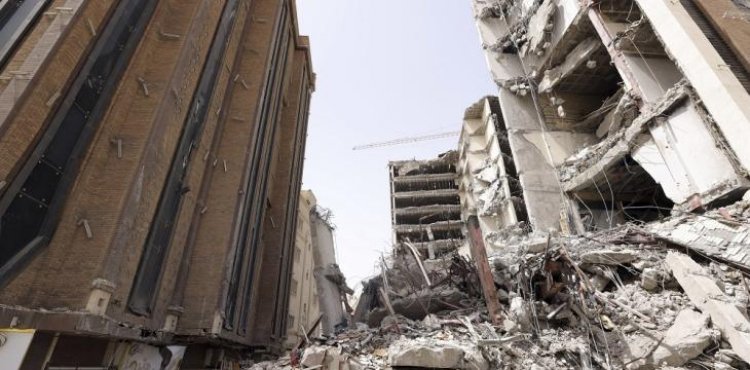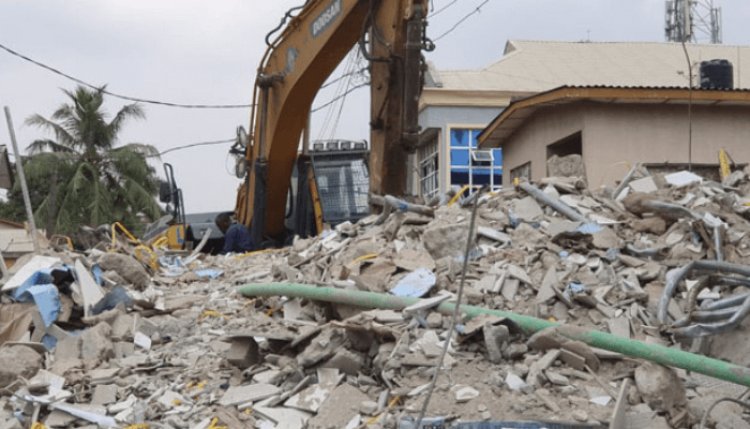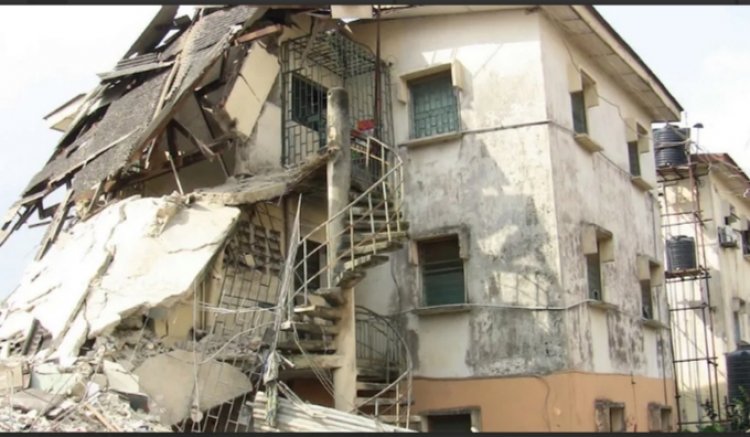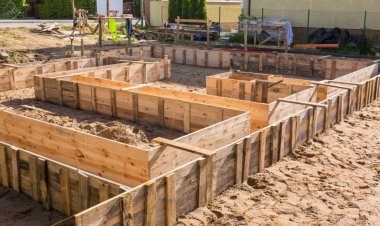Nigeria: Experts Speak On How Govt Can Address Building Collapse Menace
The new policy only applies to new buildings, not to buildings that were constructed many years prior to the regulation. Only when they need to be rehabilitated or renovated will...
As the number of buildings collapsing in the country have been on the rise due to regulators' inadequate enforcement of the regulations, real estate professionals have encouraged the Government to use the heavy stick against defaulting developers.
The request comes after a string of building disasters in Lagos that have recently brought the state into the spotlight.
With the tragedy at Gerrard Road, Ikoyi still fresh in the mind, the year 2022 began with the collapse of a three-story building in the Yaba area of the state, killing at least five people.
A three-story building in Ebute-Metta, Lagos, fell two months later, putting the state back in the news. At least eight persons were killed in the debris.
Another three-story structure fell in Ago, Okota, five days after the tragedy at Ebute-Metta, sparking calls from experts and industry players for the authorized government bodies to step up to their responsibilities.
 [Image of a collapsed building. Photo/Courtesy]
[Image of a collapsed building. Photo/Courtesy]
According to experts, the sad incidents that have occurred in the state in recent years could have been avoided if regulatory bodies had not slept through an expanding wave of sloppy and unethical activities by unscrupulous developers who put monetary gain ahead of public safety.
According to Alfred Olayiwola, a real estate specialist, the absence of oversight and enforcement has fueled unethical practices in the market. He noted the government's indifference to the investigation of the Ikoyi building collapse as enough proof.
When asked if the government is doing enough, he said "No, they are not doing enough, as there is no sufficient monitoring." So yet, there has been no effective monitoring. Even in the case of the Ikoyi event, I don't believe there has been any good follow-up. We have not received any information regarding their decisions. It's three buildings; if one of them collapses, the other two will undoubtedly be damaged."
Barr Ekpeyong, a property law specialist, expressed a similar stance and questioned the regulatory agencies' commitment to addressing these problems. He noted system politicization as a major reason why the wheel of enforcement has turned slowly - a reality that has resulted in several deaths in recent years.
Most building approvals are politicized, and there is a lot of rule-bending for particular privileged individuals, which inevitably contributes to this unpleasant tendency. It is a reflection of our society's moral compromise.
To many, visiting a construction site means nothing more than to file building blueprints. They are friendly with those in positions of authority, and suddenly the severe supervision is lifted. This leads to a variety of building catastrophes, which sadly result in not just financial losses but also human deaths."
He claimed that the attitude of the authorities had contributed greatly to the delay in implementing the National Building Code.
"In Nigeria, almost everything is politicized. The stakeholders recognize the significance of the National Building Code, yet the issues that matter most to Nigerians are not prioritized."
Dr. Akinsola Olufemi, a building expert and the Director of the Centre for Applied Research and Technology Innovations at Yaba College of Technology, said the regulatory authorities' enforcement net was not wide enough to catch the reality in the sector today.
He stated that the recently collapsed two buildings are old buildings that had been around for sometime. They've been around for quite some time. When I was the general secretary of the Nigerian Institute of Building in 2005, I told them that more ancient buildings will collapse than new ones when I called a press conference.
The new policy only applies to new buildings, not to buildings that were constructed many years prior to the regulation. Only when they need to be rehabilitated or renovated will the regulation be focused on them. They don't look at structures that have been standing for 40 or 50 years."
According to Olufemi, the conversion of buildings originally built for residential purposes, as well as the effects of the rainy season, could have disastrous consequences for certain buildings, which could eventually collapse due to the strain caused by weakened foundations or exceeding their intended live load.
"In Nigeria, completed buildings aren't reevaluated". The rules must be followed. The structures are built to carry the load they were designed to carry. There's what's known as live or imposed load (the load you bring into the building after it has been constructed). If it's a residential building, it shouldn't be more than 1.5 kilonewtons per square meter. It is 2.0 kilonewton per meter square if it is a commercial building. It is 3.0 kilonewton per meter square if it is an institutional or religious building.
Some residential buildings have been converted into religious worship venues without consideration for their weight. Aside from that, water has an impact on the foundation. If you construct a structure to handle 100 kilograms of load at a point when the water is distant from the foundation, the load-carrying capability of the structure will be decreased to 60% of the original load when the water level rises (during the rainy season)
As a result, during the rainy season, more structures collapse than during the dry season. "This happens because the water level rises. Yes, regulatory bodies are doing what they can within their capabilities, but the government's efforts should not be limited to new construction. It should also take into account the existing stock of structures, as there are currently more old buildings collapsing than new ones."
If you have a real estate press release or any other information that you would like featured on African Real Estate Blog Post do reach out to us via email at [email protected]











![5 Notable Architects in Africa and The Buildings They Designed [PHOTOS]](https://realestateblogpost.com/uploads/images/2023/05/image_380x226_645dc09619ac2.jpg)























